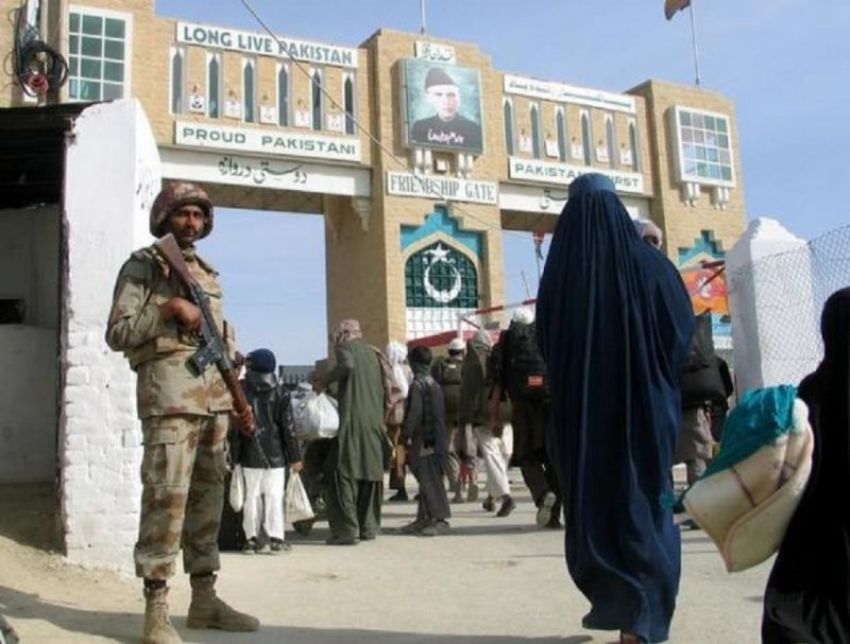Pakistani Christian man faces blasphemy charge punishable by death over Facebook post

A Christian man charged with blasphemy for making a theological argument on Facebook that Muslims deemed insulting toward the Islamic prophet Muhammad is now facing a potential death sentence for the post.
The London-based Centre for Legal Aid, Assistance and Settlement, an interdenominational aid agency serving persecuted Christians in Muslim-majority Pakistan, reports that Sohail Masih in the Nowshera Virkan in Punjab province was arrested on Aug. 5.
Following a protest by a crowd of enraged Muslims who heard about Masih’s comment online, police officially charged Masih under sections 295-A and 295-C of the Pakistani Penal Code.
Section 295-C prohibits the use of derogatory remarks toward Islam or Muhammad and makes violations punishable by death. It is the same charge leveled against Christian mother Asia Bibi, who was sentenced to death and spent over a decade in prison before her acquittal in 2018.
“This is not the first case of its kind, and several Christians like Imran Nadeem, Nabeel Masih and Patras, Kaleem and Qamar David [died in Jail] have been charged with blasphemy for sharing or having blasphemous contents either on their phone or on their computers,” CLAAS-UK Director Nasir Saeed said in a statement shared with The Christian Post.
“It is difficult to prevent the abuse of social media platforms like WhatsApp when others can easily harass Christians and ‘plant evidence’ on them,” he added. “An example: if someone shares blasphemous content to a Christian’s page, this could result in blasphemy charges against the Christian, even if the Christian did not directly interact with the content.”
According to the Union of Catholic Asia News, Masih’s Facebook comment stems from a discussion online about the Islamic sacrifice tradition of Eid-al-Adha, which took place on July 30-31.
“It is not possible that the blood of goats and bulls can wash away sins,” Masih was quoted as writing in a post. “The incident of Miraj [an Islamic belief that Muhammad ascended to Heaven to talk with the prophets] is based on a lie.”
Isra and Miraj is observed annually to honor the Islamic prophet’s nighttime journey from Mecca to a faraway mosque and Muslims' belief that he ascended to Heaven and was shown Hell.
A local mosque worship leader named Allama Muhammad Abdul Sattar filed a criminal report against Masih, UCA News reports.
“The culprit shared the post with two people. They visited my madrasa and showed it,” Sattar was quoted as claiming. “Masih mocked the Miraj incident and the sacrifice which is a principle of Islam. Muslims were extremely hurt.”
The Punjab Assembly recently passed the Tahaffuz-e-Bunyad-e-Islam Bill that prohibits the publication of objectionable material.
“It is a very worrying situation as the misuse of the blasphemy law continues to rise and instead of taking steps to stop its misuse, the government continues to pass legislation which makes the existing law more stringent,” Saeed added.
CLAAS-UK reports that local Christians in the area are “scared.” In the past, there has been societal backlash toward Christian communities in Pakistan after blasphemy allegations.
The organization pointed to past “mayhem” in communities like Gojra, Sanglalhill and Joseph Colony, where “infuriated masses” attacked and burned several houses and churches as well as killed several people.
Police officers were deployed to protect the Christian community in Nowshera Virkan after the accusation against Masih, according to CLAAS-UK.
Khalid Shehzad, a Catholic member of the National Lobbying Delegation, told UCA News that meetings were held by locals of the area to “avoid any clash.” However, Shehzad said the “pressure kept mounting” from the radical hardline Islamic organization Tehreek-e-Labbaik Pakistan.
After the Pakistan Supreme Court acquitted Bibi in the fall of 2018, TLP organized nationwide protests in opposition to Bibi being freed from the death penalty for blasphemy.
“Their activists outnumber the police, who succumb to pressure and register blasphemy cases,” Shehzad explained. “The victim spends his whole life on trial. Semi-literate pastors teach hate.”
Saeed said that enraged radicals in Pakistan have taken “the law into their own hands” in the past.
“[M]any have begun to believe that killing a blasphemer is their religious duty, as we have recently seen with a man being shot dead in a Peshawar courtroom, with the killer being hailed a hero of Islam,” Saeed stressed.
In 2014, a Christian couple was burned to death inside of a brick kiln by an enraged Muslim mob after they were falsely accused of ripping pages out of a Quran.
“In the past, we have seen that uncontrolled masses have attacked the police station, taken the person into police custody and burned him alive in front of the police station,” Saeed added. “But hardly anyone has been brought to justice. Such inaction from the government encourages people to take the law into their own hands and decide the fate of the alleged blasphemer there and then.”
Pakistan is ranked as the fifth-worst country in the world when it comes to Christian persecution on Open Doors USA’s 2020 World Watch List.
At the U.S. State Department’s 2019 Ministerial to Advance Religious Freedom last July, Pakistani rights activist Shaan Taseer said that there are as many as 200 people jailed in Pakistan on blasphemy charges.
At the same function, U.S. National Security Council Senior Director for South and Central Asia Lisa Curtis explained that there are more people imprisoned for blasphemy in Pakistan than in all other countries combined.
That doesn’t mean that blasphemy laws are not a problem elsewhere.
The U.S. Commission on International Religious Freedom on Tuesday condemned the death sentence handed to a 22-year-old Nigerian singer by a Sharia court in Kano state Nigeria. The singer, Yahaya Sharif-Aminu, was accused of insulting Muhammad in a song.
Follow Samuel Smith on Twitter: @IamSamSmith
or Facebook: SamuelSmithCP



























